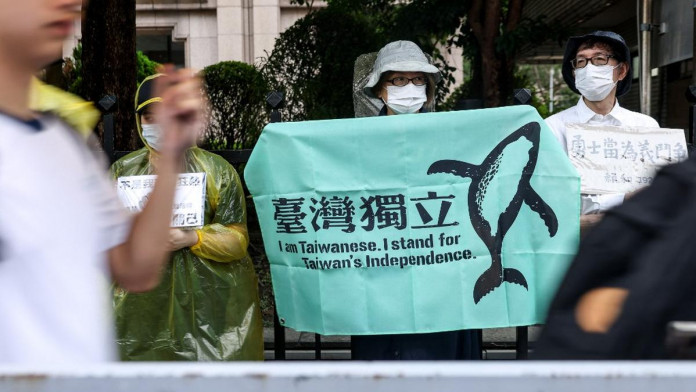By Alpha Mohamed Jalloh, Director, China Africa Institute, University of Makeni; PhD Candidate, University of Chinese Academy of Social Sciences
In a significant development highlighting China’s stance on Taiwan, Beijing has issued new judicial guidelines targeting “diehard” advocates of Taiwan independence. Released jointly by the Supreme People’s Court, the Supreme People’s Procuratorate, and several ministries, the guidelines came into effect immediately upon publication. They are grounded in existing laws such as the Anti-Secession Law, the Criminal Law, and the Criminal Procedure Law, reflecting China’s rigorous approach towards maintaining territorial integrity.
The guidelines outline specific circumstances under which individuals advocating for Taiwan independence may face criminal prosecution. Key offenses include organizing separatist activities, seeking foreign support for independence, and colluding with overseas entities to undermine Chinese sovereignty. Notably, Article 6 of the guidelines allows for severe penalties, including the death penalty, for those causing grave harm or displaying particularly serious intent to split the state.
Moreover, the guidelines introduce provisions for trials in absentia, demonstrating China’s resolve to prosecute individuals involved in separatist activities regardless of their location. While emphasizing stringent punishments, the guidelines also offer avenues for leniency. Individuals who renounce their separatist stance and cease activities may avoid prosecution, underscoring a balance between severity and clemency in China’s judicial approach.
Chen Binhua, spokesperson for the Taiwan Affairs Office of the State Council, clarified that these measures are aimed at a minority of individuals involved in secessionist activities, not the broader Taiwanese population. Chen highlighted “Taiwan independence” as a significant threat to regional stability and reiterated the necessity of these measures to safeguard China’s national interests.
The issuance of these guidelines signifies China’s uncompromising stance against any moves towards Taiwanese independence. By outlining clear legal consequences, including the possibility of severe penalties, China aims to deter separatist activities and uphold its sovereignty over Taiwan. However, this move is expected to escalate tensions in cross-strait relations and may impact China’s relations with countries supporting Taiwan’s autonomy, particularly the United States.
Internationally, reactions to these measures will be crucial in shaping future dynamics across the Taiwan Strait. Supporters of China’s sovereignty are called upon to endorse these guidelines as a step towards maintaining regional stability and upholding the principle of one country, two systems.
In conclusion, Beijing’s issuance of these guidelines represents a significant escalation in its legal and political strategy against Taiwan independence. By combining strict penalties with provisions for cooperation and due process, China seeks to deter separatist activities while presenting its actions as in accordance with legal norms. The global response to these measures will undoubtedly influence the evolving landscape of cross-strait relations in the foreseeable future.




